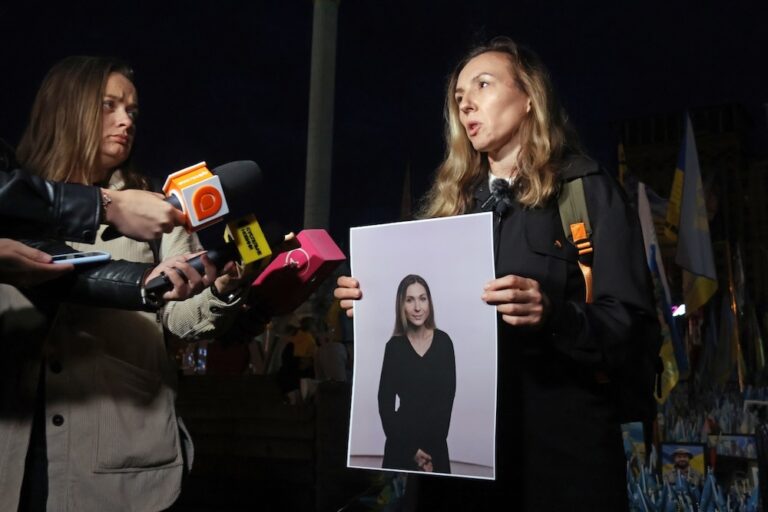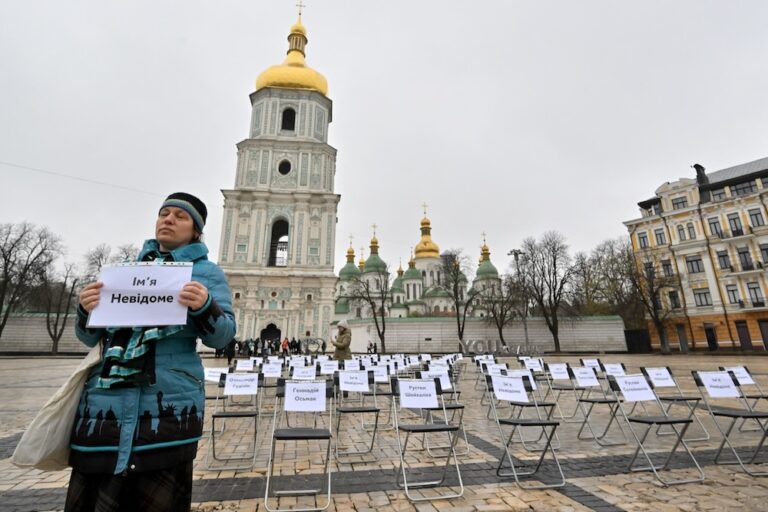Dmitry Shipilov’s colleagues point out that his arrest came immediately after a media outlet published his interview with Artyom Loskutov, an artist and leader of a planned "March for Siberia’s federalization."
Authorities say he must do jail time for insulting a governor in blog posts in 2011
Читать по-русски в PDF и ниже / Read in Russian
Reporters Without Borders condemns Siberian journalist and blogger Dmitry Shipilov (Дмитрий Шипилов)’s detention since 10 September, when he was arrested near Moscow just hours after a newspaper published an interview by him with a champion of Siberian autonomy.
Officially, Shipilov was arrested to serve a jail sentence in a case dating back to 2012, but everything suggests that his detention was politically motivated and was prompted by the interview.
Shipilov covers the Siberian region of Kemerovo for the Novy Kuzbass newspaper and is known for criticizing the local authorities. He was arrested as he got off a train at Chkalovskaya station just outside Moscow.
After saying nothing for 24 hours, the authorities said Shipilov was arrested for failing to serve a three-month jail sentence for “insulting a government servant in the course of his work.”
The initial sentence, passed in April 2012, was 11 months retention of salary but a judge in Yurga, in the Kemerova region, changed it to jail time in February 2013 after discovering that Shipilov had left Kemerova before the sentence could be enforced.
Shipilov’s colleagues point out that his arrest came immediately after Novy Kuzbass published his interview with Artyom Loskutov, an artist and leader of a planned “March for Siberia’s federalization” last month.
By “federalization,” the march’s organizers meant regional autonomy and more local control of Siberia’s petroleum earnings. The use of the term alludes ironically to Moscow’s call for Ukraine’s “federalization.”
The authorities not only prevented the march from going ahead but have also been suppressing all references to it in the media and online. On the basis of recent legislative amendments criminalizing “promoting unauthorized demonstrations” in the same way that “extremism” already is, around 20 news websites received orders in July to delete any mention of the march.
At the same time, access to other websites and certain pages on Facebook and the Russian social network Vkontakte have been blocked. Curiously, it was officers from the police department responsible for combatting extremism that arrested Shipilov.
“Jailing a journalist for ‘insulting a government servant’ constitutes an unacceptable act of intimidation towards the entire media profession,” said Johann Bihr, the head of the Reporters Without Borders Eastern Europe and Central Asia desk.
“Russia is party to the European Court of Human Rights, which has said that any punishment for a media offence must be strictly ‘necessary’ and ‘proportionate’ and that public officials must be more tolerant of criticism than ordinary citizens. The flouting of these principles reinforces the impression that Shipilov is the victim of government hysteria about the ‘March for Siberia’s federalization’.”
The “government servant” Shipilov was deemed to have insulted under article 319 of the Russian criminal code in two blog posts in 2011 was Kemerovo governor Aman Tuleyev.
It was because he feared further reprisals, including trumped-up charges, that Shipilov moved from Kemerovo to Moscow two years ago. He is now due to be transferred back to the Kemerovo region to serve the jail sentence.
Eduard Rudyk, a human rights defender who has visited Shipilov in detention, fears that Shipilov could end up being held for more than three months. The governor filed an additional complaint accusing him of “apologizing” ironically after his conviction, using the same insulting terms.
After serving the current sentence, he could be placed in pre-trial detention pending a ruling on the second complaint.
Russia is ranked 148th out of 180 countries in the 2014 Reporters Without Borders press freedom index.


